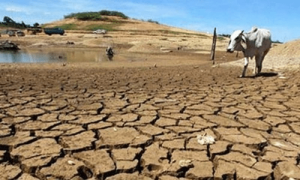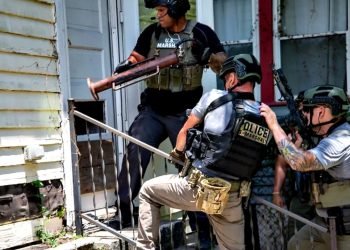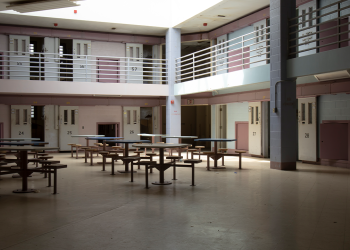The recent unified message from Pakistan’s civilian and military leadership – surrender the facilitators of Fitnah al-Khawarij or face elimination – reflects a nation pushed to a difficult inflection point. The martyrdom of more than a dozen soldiers in intelligence-based operations in Orakzai and Dera Ismail Khan has understandably hardened resolve across political and security circles. Every state has the solemn duty to protect its citizens and to punish those who wage war against it. Yet, in translating resolve into action, the path a nation chooses will determine not only short-term security gains but the durability of peace that follows.
There is no ambiguity about the threat. A lethal nexus of violent extremists, narcotics trafficking and illicit smuggling has for years corroded stability in Khyber Pakhtunkhwa and Balochistan. Weapons left behind in Afghanistan after the 2021 withdrawal, transnational terror networks, and shadowy financiers exploit porous borders and weak governance to wreak havoc. The state’s insistence on dismantling facilitation networks – the logisticians, protectors and financiers who make terrorism possible – is therefore justified and necessary.
But legitimacy in action matters as much as force. The government and the Armed Forces must pursue a campaign that is both uncompromising and lawful: intelligence-led operations that minimize civilian harm, clear chains of legal accountability, and transparent post-operation reporting. When Prime Minister Shehbaz Sharif and the DG ISPR frame this as a national war for survival, that rhetoric must be matched by strict adherence to constitutional norms. Security without due process risks breeding the very grievances that fuel extremism. The objective, always, must be to neutralize threats while preserving Pakistan’s democratic and judicial fabric.
Equally urgent is the need to cut the money and mobility that sustain militants. The repeated linkage of terrorism with narcotics and smuggling in expert testimony is not incidental. Illegal economies provide lifelines to networks that otherwise could not function. A whole-of-government strategy – involving customs, anti-narcotics agencies, financial intelligence units, and law enforcement – must target illicit flows, disrupt laundering channels, and prosecute facilitators regardless of political patronage. Those who profit from smuggling and trafficking are not neutral actors; they are combatants in a financial war that funds bloodshed.
Border management and regional diplomacy are indispensable complements to kinetic action. Islamabad’s call upon the interim Afghan authorities to honor the Doha commitments and prevent use of Afghan soil against Pakistan is reasonable. But effective border security cannot be a one-way demand. Pakistan must continue political and diplomatic engagement with Kabul’s de facto authorities while also strengthening bilateral and multilateral mechanisms for intelligence-sharing, repatriation of unregistered refugees where appropriate, and coordinated anti-smuggling efforts. Blunt ultimatums risk isolation; calibrated pressure and cooperation – backed by clear evidence and international support – will likely be more effective.
Domestic reform remains the foundation for long-term success. The National Action Plan of 2014 laid out a blueprint that, if fully implemented, would undercut the social and institutional vulnerabilities terrorists exploit. Regulatory oversight of seminaries, judicial reform to speed the prosecution of extremist cases, capacity-building for Counter-Terrorism Departments, and robust counter-messaging to combat online radicalization are not optional extras. They are central. Voices from academia rightly note that uneven registration of madrasas and lagging judicial reforms have left gaps that must be closed. These are technical, difficult, and politically sensitive tasks – but they are indispensable.
The humanitarian dimension cannot be sidelined. Pakistan has for decades hosted millions of Afghan refugees on compassionate grounds. Calls for returns of unregistered refugees must be handled humanely and in accordance with international norms; collective punishment or indiscriminate expulsions would be a moral and strategic mistake. Instead, a concerted effort to register populations, identify security risks, and separate criminal elements from vulnerable civilians will serve both security and humanitarian ends.
Finally, national unity is essential. Terrorism thrives on division and cynicism. Political parties, media, civil society and religious leaders must refrain from politicizing sacrifice. Honour the fallen by supporting a coherent national strategy rather than weaponizing violence for partisan gain. At the same time, security operations must not become a pretext for curtailing civil liberties or marginalizing communities. The fight against violent extremism must be waged with the values the nation claims to defend.
Pakistan’s security institutions are right to be resolute. The perpetrators and facilitators of violence must be brought to justice. But force alone will not secure a durable peace. Military pressure, robust law enforcement and targeted diplomacy must be married to transparent governance, economic opportunity in neglected regions, and social reforms that delegitimize violent ideologies. If the state can sustain this balance – resolve tempered by rule of law, strength coupled with fairness – then the sacrifices of the martyrs will have been honored not only with retribution, but with a safer, more just future for all Pakistanis.
The post Resolve, rule of law and the long road to lasting peace appeared first on The Financial Daily.








